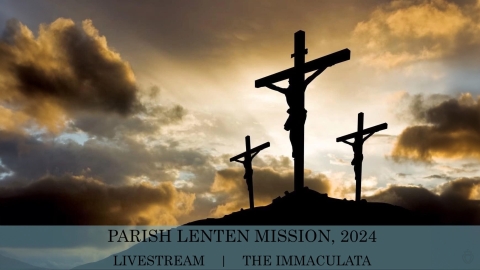Amoris Laetitia - The SSPX Review

The post-synodal apostolic exhortation Amoris Laetitia by His Holiness Pope Francis is dated March 19 and was released on April 8, 2016. Several SSPX priests have already written some commentaries which we have collected here.
The following studies of this Exhortation, written by priests of the Society of St. Pius X, give a first impression of the document and of its consequences. In light of the perennial and unchangeable teachings of the Church, they manifest the errors and ambiguities in its doctrine and the open doors for changes in practice.
Further and more detailed reviews will follow these in the near future.
After the Synod: Indissolubility Called into Question
Father Christian Thouvenot, Secretary General of the Society of St. Pius X, comments on the the indissolubility of marriage called into question by the post-synodal Apostolic Exhortation Amoris Laetitia released on April 8, 2016.
Today, the divorced and “remarried,” as well as cohabiting couples, whether or not they have engaged in a civil union, are the objects of solicitude of a lax pastoral approach that strongly risks encouraging them to remain in their openly sinful situations—to the great scandal of faithful Catholics, ever more disoriented by the new conciliar religion.
Read Fr. Thouvenot's full article >
Amoris Laetitia: a Triumph of Subjectivism
Father Matthias Gaudron, priest of the Society of St. Pius X, comments on the subjectivism of Amoris Laetitia
We should not fail to say that there are also very fine passages in Amoris Laetitia. The Pope really strives to promote the ideal of Christian marriage. He explains why the union of husband and wife in marriage must by its very nature be indissoluble; he draws a beautiful picture of the Christian family, speaking about the great gift of children; he gives advice for overcoming crises and raising children. Against the widespread ideology regarding gender, he writes: 'Every child has a right to receive love from a mother and a father; both are necessary for a child’s integral and harmonious development' (¶172). He emphasizes that children need a mother’s presence, especially in the first months of life (¶173), and also points out the important role of the father and the dangers of a 'society without fathers' (¶176). Furthermore Pope Francis makes mention of the fact that the education of children is 'a primary right' of parents (¶84) and that the State has only a subsidiary role in it."
But even in those sections certain criticisms are unavoidable."
Read Fr. Gaudron's full article >
Amoris Laetitia: Considerations on Chapter 8
Father Jean-Michel Gleize, professor of ecclesiology at the SSPX seminary of St. Pius X in Econe, comments on chapter 8 of the Apostolic Exhortation.
'In the variety of ways possible:' why not, then, in admitting them to Eucharistic Communion? If it is no longer possible to say that the divorced and remarried are living in a state of mortal sin (¶301), why should the fact of giving them Communion be an occasion for scandal? And at that point, why refuse them Holy Communion? The Exhortation Amoris Laetitia is clearly moving in this direction. In so doing, it represents an occasion of spiritual ruin for the entire Church; or in other words, what theologians call a 'scandal' in the full sense of the term. And this scandal is the consequence of a practical relativization of the truth of the Catholic Faith concerning the necessity and indissolubility of the sacramental union of marriage.
Read Fr. Gleize's full article >
Amoris Laetitia: a Subversive Teaching
Father Denis Puga, priest of the Society of St. Pius X, comments on Amoris Laetitia.
This is the second time in less than a year that Pope Francis has caused a breach that weakens the sacrament of marriage. From the one whose duty it is to be the guardian of the Deposit of Faith, this is a terrible disaster for the salvation of souls and the future of the Church. But Christ promised us the gates of hell will not prevail against her.
Read Fr. Puga's full article >





